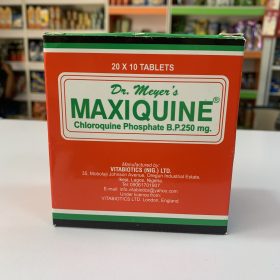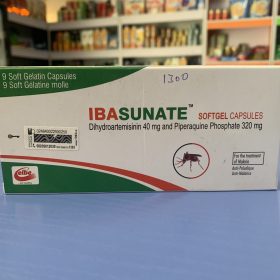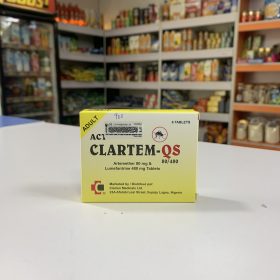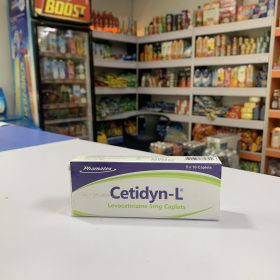- Your cart is empty
- Continue Shopping

Product
Sulfadoxine and pyrimethamine are two antimalarial medications that are often combined in tablet form to create an effective treatment for malaria. This combination therapy is used for the treatment of uncomplicated malaria infections, particularly those caused by the malaria parasite Plasmodium falciparum.
How Sulfadoxine and Pyrimethamine Work:
- Sulfadoxine: Sulfadoxine is a sulfonamide antibiotic that inhibits the growth of the malaria parasite by interfering with its ability to produce folic acid, which is essential for its replication.
- Pyrimethamine: Pyrimethamine is an antiparasitic medication that works by inhibiting the action of an enzyme called dihydrofolate reductase, further disrupting the parasite’s ability to produce essential components for its growth.
Uses:
- Sulfadoxine and Pyrimethamine Tablets are primarily used for the treatment of uncomplicated malaria infections caused by Plasmodium falciparum.
Directions for Use:
- The dosing regimen and duration of treatment with Sulfadoxine and Pyrimethamine Tablets will be determined by your healthcare provider based on factors such as the patient’s age, weight, and the regional prevalence of drug-resistant malaria strains.
- These tablets are typically taken orally as a combination of sulfadoxine and pyrimethamine.
- It is important to complete the full course of treatment as prescribed to ensure the complete elimination of the malaria parasite.
Caution:
- Inform your healthcare provider about any allergies, medical conditions, or other medications you may be taking before using Sulfadoxine and Pyrimethamine Tablets.
- Resistance to antimalarial medications, including this combination therapy, has been reported in some regions. Therefore, it’s crucial to use it as directed and follow regional guidelines for malaria management.
Sulfadoxine and Pyrimethamine Tablets are available by prescription and should be used under the guidance of a healthcare provider. The choice of antimalarial treatment and its administration will depend on the specific circumstances, such as the type of malaria parasite prevalent in the region and the severity of the infection. Completing the full course of treatment is essential for effective malaria management.









